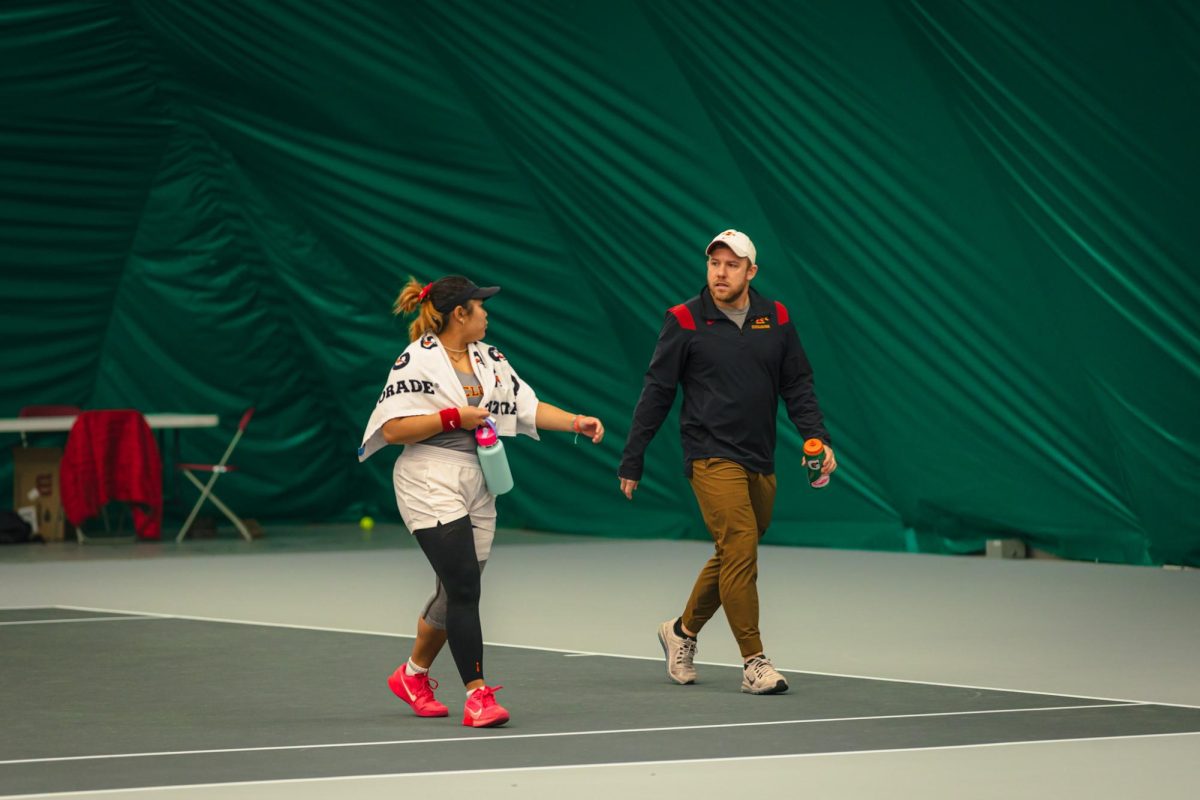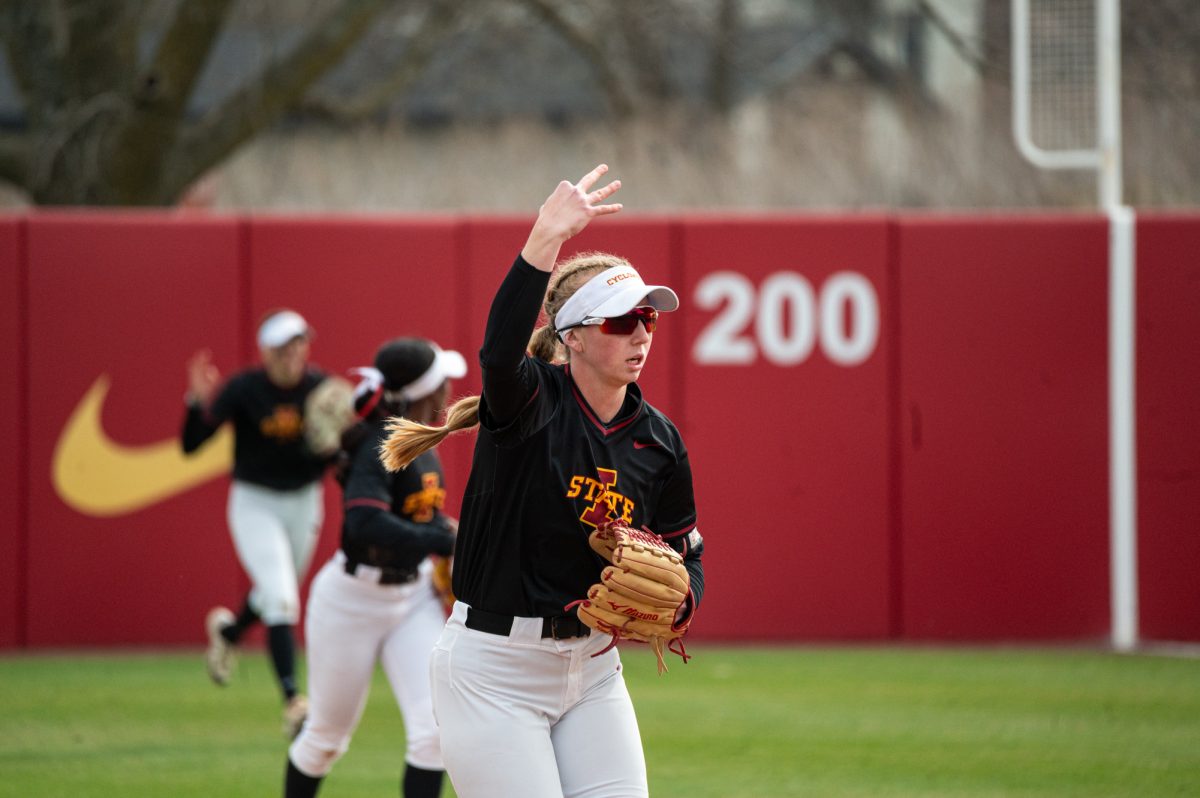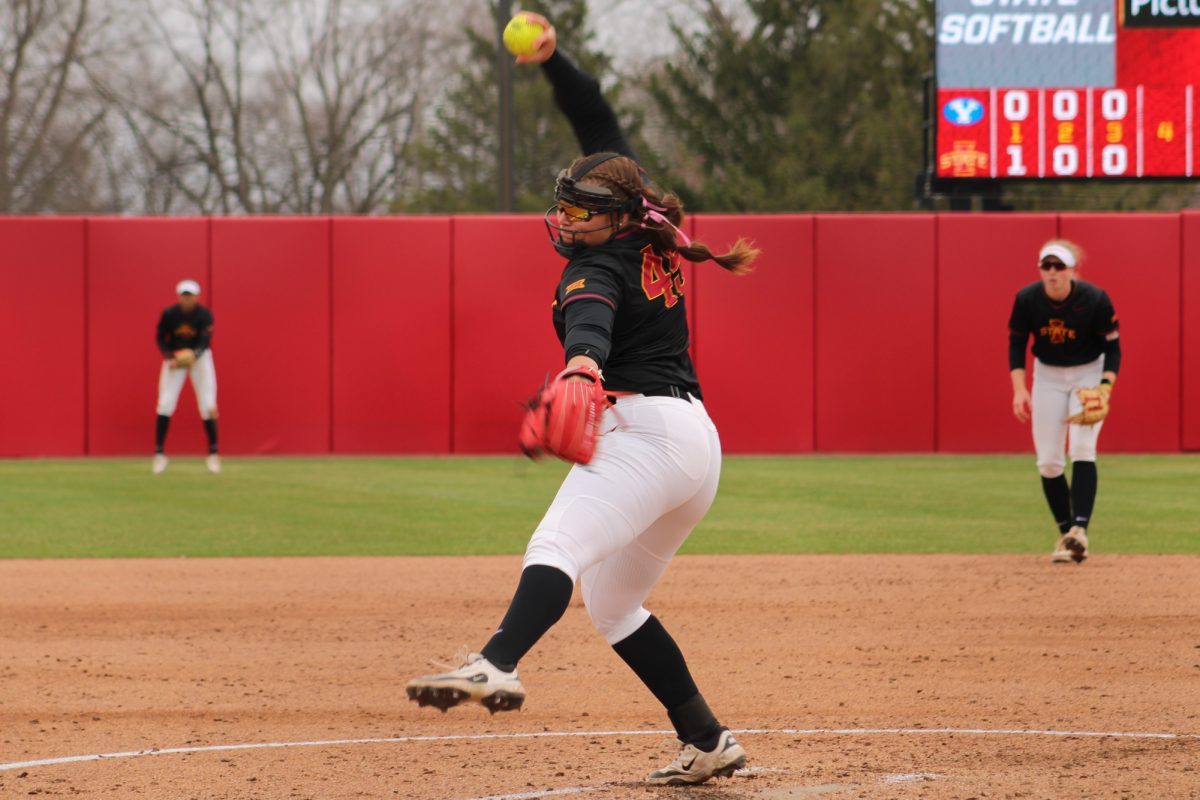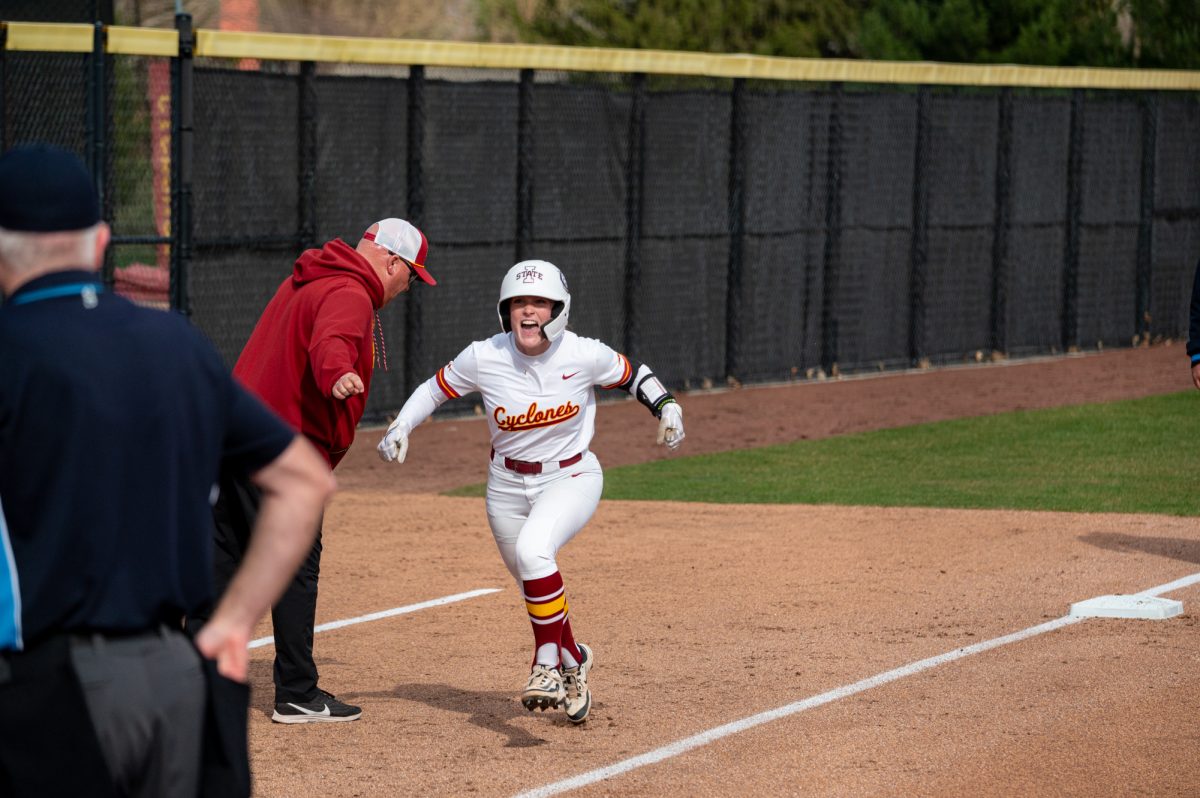Iowans consume locally produced food
April 30, 1998
The average food item travels about 1,300 miles before being consumed, causing many products to spoil before delivery, according to Iowa State’s College of Agriculture.
To find a better quality of freshness, more and more Iowans are buying locally produced foods.
The Leopold Center for Sustainable Agriculture at ISU is sponsoring programs to gain more attention for the institutional buying of locally-produced foods.
Rich Pirog, education coordinator for the Leopold Center, said many Iowans are meeting the challenge to buy more Iowa-grown foods. Last July, the Leopold Center held its 10th anniversary conference at the Scheman Building and served a menu with almost all Iowa-grown food.
Pirog said the people working at the Scheman Building were very cooperative; however, they had never experimented with this type of menu before.
On April 8, the Leopold Center brought in guest speaker Gary Valen to discuss this concept with representatives of hospitals, schools and other institutions where food is served in large quantities.
Valen, the former dean of students at Hendrix College in Arkansas, created a project that increased local food purchases by the college’s food service from 7 percent to 30 percent, according to the press release.
“Every dollar spent in a local community multiplies itself times seven, so buying locally-produced foods makes good economic sense,” Valen said.
Chris Palar, food service director for the Iowa State Center, attended Valen’s speech and has started to create a menu with 100-percent Iowa-grown foods for groups dining at the Scheman Building.
With his agricultural background, Palar is excited about the new menu. “The locally-produced foods will be more fresh and the quality of the food will be better,” he said.
Right now, Palar is busy gathering names of producers and growers within the area. He said he expects the menu to be complete by the end of the summer.
The Leopold Center is also funding a project at the University of Northern Iowa.
Ramyar Enshayan, UNI adjunct professor, said he wants to use a greater portion of Iowa-grown foods such as flour, sugar, oats and honey in the UNI dining services.
He emphasized that it is a great opportunity to invest UNI’s food dollars back into the community.
Since the idea of buying more locally-produced foods in Iowa is a fairly new concept, Pirog said, he wants to find out more.
“I feel the potential of buying Iowa produced foods will have a great impact on creating markets and more opportunities for Iowa Farmers,” Pigor said.
Another program, Community Supported Agriculture (CSA), is making it easier for a community to find local goods. A community member can pay a membership fee of $250 that allows him or her to purchase fresh vegetables or other goods from a local farmer every week.
The consumer commits to buy from the farmer for the entire growing season, said Robert Karp, member of the core group for the Magic Beanstalk CSA.
Karp said the CSA was started four years ago in central Iowa.
“Our purpose is to help small farmers survive and to create a better community using the partnerships between the farmers and those people living within the community,” he said.
The CSA also sponsors events such as spring and harvest festivals to help build communities and to advance education.






